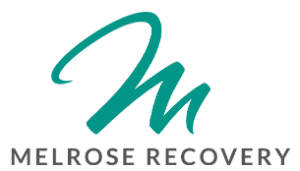Ativan Rehab
Ativan Rehab – Since 2015 Melrose Recovery, your pathway to transformation and healing. Located in the vibrant heart of Los Angeles, California just moments away from iconic Hollywood and the picturesque beaches of Santa Monica and Venice, we are dedicated to changing lives. Our comprehensive Ativan side effects treatment encompasses detoxification, residential care, and aftercare services, all tailored to meet each couples or individual’s unique needs on their recovery journey.
Led by a compassionate team of addiction professionals and counselors, we offer a range of therapy programs designed to support and guide individuals suffering Ativan withdrawal toward lasting sobriety. At Melrose Recovery, we believe in the power of personalized care and diverse treatment options to pave the way for a brighter future.
What Is Ativan
Ativan is the brand name for lorazepam, a prescription medication that belongs to the benzodiazepine class of drugs.
Ativan Uses / Reasons To Prescribe:
- Anxiety disorders
- Insomnia (short-term)
- Seizures (including status epilepticus)
- Preoperative sedation
- Alcohol withdrawal symptoms
Ativan works by enhancing the effects of a neurotransmitter called GABA (gamma-aminobutyric acid) in the brain, which produces a calming effect on the nervous system.
Key Facts About Ativan:
- Classification: Benzodiazepine, Schedule IV controlled substance
- Form: Available in tablets, liquid solution, and injectable form
- Onset of Action: Rapid, often within 15-30 minutes orally
- Duration: Intermediate-acting, effects last 6-8 hours
Warnings:
Ativan can be habit-forming and lead to dependence, tolerance, and withdrawal symptoms if used long-term or in higher doses than prescribed. It should be used cautiously under medical supervision, especially in people with a history of substance abuse or mental health conditions.
Common Side Effects:
- Drowsiness
- Dizziness
- Weakness
- Confusion
- Memory problems
Ativan (Lorazepam): Side Effects, Overdose Risk, and Withdrawal Concerns
An estimated 40 million adults in the United States—around 18% of the population—experience some form of anxiety, according to the Anxiety and Depression Association of America.
To manage these symptoms, many individuals are prescribed anti-anxiety medications such as Ativan (lorazepam), a fast-acting benzodiazepine. When used as directed under medical supervision, Ativan can effectively alleviate anxiety symptoms. However, like all medications in its class, Ativan carries potential risks. These include side effects, the possibility of overdose, the development of dependence, and the experience of withdrawal symptoms when use is reduced or stopped abruptly.
Understanding the benefits and risks of Ativan is important for making informed decisions about anxiety treatment and long-term health.
Ativan Side Effects
The side effects of Ativan (lorazepam) can vary in intensity, often depending on the dosage. Higher doses tend to increase the likelihood and severity of adverse reactions, some of which can be serious—such as breathing difficulties and significant impairment of coordination.
Frequently reported side effects of Ativan include:
- Drowsiness
- Dizziness
- Poor coordination or balance
- Headache
- Nausea
- Blurred vision
- Constipation
- Dry mouth
- Changes in appetite or body weight
While many side effects are mild and temporary, users should always consult with a healthcare provider if symptoms worsen or interfere with daily functioning.
How Ativan Affects the Body
Ativan (lorazepam) works by slowing brain and nerve activity, which produces calming effects on both the mind and body. As a benzodiazepine tranquilizer, it helps relieve anxiety, promotes muscle relaxation, and can be used to control seizures or stop muscle spasms when taken as prescribed. For individuals using Ativan under medical supervision, it is generally considered safe and effective.
However, Ativan’s sedative properties can impair physical coordination and alertness. Users may experience drowsiness, clumsiness, or disorientation, which increases the risk of accidental injuries. According to the National Highway Traffic Safety Administration, benzodiazepines like Ativan can produce effects similar to alcohol intoxication—including slurred speech, poor motor control, blurred vision, and delayed reaction times.
Because of these effects, operating a vehicle or engaging in activities that require focus and coordination while using Ativan can be hazardous—particularly if combined with alcohol or other depressants.
Mental and Emotional Effects of Ativan
Lorazepam, the active ingredient in Ativan, is designed to calm excessive brain activity and ease emotional distress associated with anxiety and restlessness. While it can be highly effective in promoting mental calmness, it may also dull emotional responses and reduce engagement with everyday life.
Some individuals using Ativan may notice a decline in motivation or interest in usual activities. They might feel persistently tired, emotionally flat, or disconnected, often appearing sluggish or sedated.
Although Ativan is meant to soothe the mind, it can sometimes lead to “rebound” effects—where the original symptoms return or worsen after the medication wears off. Common rebound symptoms include heightened anxiety, sleep difficulties, irritability, involuntary body movements, and agitation. These effects can make long-term or unsupervised use problematic, especially without proper medical guidance.

Can You Overdose on Ativan?
Yes, an overdose on Ativan (lorazepam) is possible—especially when taken in large quantities or combined with other substances. When used as prescribed, Ativan is generally safe and effective. However, taking excessive doses can slow vital body functions to dangerous levels, potentially leading to coma or even death.
As a central nervous system depressant, Ativan reduces brain and nerve activity. While overdose is uncommon when the drug is taken alone and as directed, high doses—particularly when combined with other depressants like alcohol, opioids, or sleep medications—can be life-threatening. Many reported overdoses have involved such drug combinations, whether intentional or accidental.
Warning Signs of an Ativan Overdose
Recognizing the symptoms of an Ativan overdose can be lifesaving. Common signs include:
- Pale or bluish skin and lips
- Shallow or slowed breathing
- Extreme drowsiness or unresponsiveness
- Loss of coordination or stumbling
- Slurred speech
- Confusion or memory problems
- Muscle weakness
- Loss of consciousness
An Ativan overdose is a medical emergency. If you suspect someone has overdosed, call 911 immediately. Never leave the person alone, especially if they may have taken other substances. Prompt medical care can mean the difference between recovery and a fatal outcome.
Ativan Withdrawal: What to Expect
Prolonged or improper use of Ativan (lorazepam) can lead to physical dependence, where the brain and body adjust to functioning with the drug in their system. When Ativan use is suddenly reduced or stopped, this disruption can trigger a range of withdrawal symptoms.
Withdrawal occurs because the body is trying to reestablish balance without the drug’s calming influence. The severity and duration of symptoms vary depending on factors such as dosage, length of use, and individual health.
Common physical and psychological symptoms of Ativan withdrawal include:
- Rebound anxiety and trouble sleeping
- Irritability, restlessness, and mood swings
- Elevated heart rate, high blood pressure, sweating, and shaking
- Headaches, nausea, and vomiting
- Muscle aches and stiffness
- Difficulty concentrating or memory issues
- Panic attacks
Because some symptoms can be intense or even dangerous, it’s recommended that Ativan withdrawal be managed under medical supervision, often through a gradual tapering process.
Understanding Ativan Addiction
One of the most serious risks associated with Ativan (lorazepam) use is the potential for addiction. While the Diagnostic and Statistical Manual of Mental Disorders, Fifth Edition (DSM-5), doesn’t list Ativan specifically, it includes this condition under the broader category of Sedative, Hypnotic, or Anxiolytic Use Disorder.
To be diagnosed with this disorder, an individual must meet at least two of the following criteria within a 12-month period:
- Using the drug in larger amounts or for longer than intended
- Wanting to reduce or stop use, but being unable to
- Spending a significant amount of time obtaining, using, or recovering from the drug
- Experiencing strong cravings or urges to use
- Failing to meet responsibilities at work, school, or home due to substance use
- Continuing use despite ongoing relationship problems
- Giving up important social, work, or recreational activities because of drug use
- Using repeatedly in situations where it’s physically hazardous
- Continuing use despite knowing it’s harming your health
- Developing tolerance—needing more to achieve the same effect
- Experiencing withdrawal symptoms relieved by taking more of the drug
If you or someone you care about is showing signs of Ativan misuse or dependency, seeking professional support is essential. A healthcare provider can assess the severity of the issue and recommend a personalized treatment plan for recovery.

Frequently Asked Questions About Ativan
What is Ativan? – Ativan Rehab
Ativan is the brand name for lorazepam, a prescription benzodiazepine used primarily to treat anxiety disorders, insomnia, seizures, and to provide sedation before medical procedures.
How does Ativan work? – Ativan Rehab
Ativan enhances the effects of GABA, a calming neurotransmitter in the brain, helping to reduce nervous system activity and promote relaxation.
What conditions is Ativan prescribed for? – Ativan Rehab
Ativan is commonly prescribed for anxiety disorders, panic attacks, insomnia, seizure control, muscle spasms, and as a sedative before surgeries or procedures.
Is Ativan addictive? – Ativan Rehab
Yes, Ativan can be addictive, especially when used for long periods or in high doses. It can lead to physical dependence, tolerance, and substance use disorder.
How long does it take for Ativan to start working? – Ativan Rehab
Ativan usually begins to take effect within 15 to 30 minutes after oral administration, with peak effects occurring within 1 to 2 hours.
How long does Ativan stay in your system? – Ativan Rehab
Ativan has a half-life of about 12 hours, but it may take several days to fully clear from the body, depending on factors like age, metabolism, and liver function.
What are the common side effects of Ativan? – Ativan Rehab
Common side effects include drowsiness, dizziness, fatigue, blurred vision, confusion, and loss of coordination.
Can Ativan be used long-term? – Ativan Rehab
Ativan is typically prescribed for short-term use due to its risk for tolerance, dependence, and withdrawal symptoms.
What does Ativan withdrawal feel like? – Ativan Rehab
Withdrawal symptoms may include rebound anxiety, insomnia, tremors, sweating, irritability, nausea, and in severe cases, seizures.
Can you overdose on Ativan? – Ativan Rehab
Yes, especially when combined with other depressants like alcohol or opioids. An overdose can cause slowed breathing, unconsciousness, or death.
Is Ativan safe during pregnancy? – Ativan Rehab
Ativan is not generally considered safe during pregnancy due to potential risks to the developing fetus, including withdrawal symptoms in the newborn.
Is it safe to drive after taking Ativan? – Ativan Rehab
No, Ativan can impair motor skills, coordination, and reaction times, making it dangerous to drive or operate machinery.
How is Ativan different from Xanax? – Ativan Rehab
Both are benzodiazepines, but Ativan has a slightly longer duration of action and may be less likely to cause rebound anxiety compared to Xanax (alprazolam).
Can Ativan be used for sleep? – Ativan Rehab
Yes, Ativan is sometimes prescribed for short-term treatment of insomnia, though it’s not typically recommended for long-term sleep issues.
How should Ativan be taken? – Ativan Rehab
Ativan should be taken exactly as prescribed by a healthcare provider, typically by mouth in tablet form, and not more often or in larger doses than directed.
Can Ativan cause mood changes? – Ativan Rehab
Yes, some users may experience mood swings, depression, or paradoxical reactions like agitation or aggression.
Is Ativan used in hospitals? – Ativan Rehab
Yes, Ativan is frequently used in hospital settings to manage acute anxiety, seizures, alcohol withdrawal, or to sedate patients before procedures.
How does Ativan affect the brain? – Ativan Rehab
Ativan slows down brain activity by enhancing the calming effects of GABA, resulting in sedation, reduced anxiety, and muscle relaxation.
What should you avoid while taking Ativan? – Ativan Rehab
Avoid alcohol, opioids, and other sedatives, as these can dangerously amplify Ativan’s depressant effects. Also avoid driving or operating heavy machinery.
How is Ativan stored? – Ativan Rehab
Ativan should be stored at room temperature, away from moisture and heat, and out of reach of children or unauthorized users.
Can you suddenly stop taking Ativan? – Ativan Rehab
No, stopping Ativan abruptly can cause serious withdrawal symptoms. It should be tapered off gradually under medical supervision.
Does Ativan interact with other medications? – Ativan Rehab
Yes, Ativan can interact with many drugs, including antidepressants, opioids, antihistamines, and alcohol, potentially increasing sedation or risk of overdose.
Can Ativan cause memory problems? – Ativan Rehab
Yes, Ativan may cause short-term memory impairment, particularly at higher doses or with long-term use.
Who should avoid taking Ativan? – Ativan Rehab
People with a history of substance abuse, respiratory problems, liver disease, or certain mental health conditions should avoid Ativan unless specifically prescribed.
What treatments are available for Ativan addiction? – Ativan Rehab
Treatment may include medical detox, behavioral therapy, counseling, and support groups as part of a comprehensive addiction recovery plan.
Health Insurance PPO Plans For Ativan Rehab
PPO Plans for Melrose Recovery Gabapentin Rehab in Los Angeles, California
Finding effective treatment for drug and alcohol addiction is one of the most important steps in the recovery journey. For many individuals and families, navigating how to pay for rehab can be a major concern. Fortunately, Melrose Recovery, a leading addiction treatment center in Los Angeles, California, accepts a wide range of PPO (Preferred Provider Organization) health insurance plans, making high-quality care more accessible and affordable.
Why Choose Melrose Recovery? – Ativan Rehab
Melrose Recovery offers a structured and supportive environment for individuals seeking recovery from substance use disorders. Their programs include:
- Medical Detox
- Residential Inpatient Treatment
- Dual Diagnosis Treatment
- Individual and Group Therapy
- Aftercare Planning
What sets Melrose apart is their client-centered approach, experienced clinical team, and commitment to long-term recovery. Located in Los Angeles, the facility provides a safe and comfortable setting to begin healing.
What Are PPO Insurance Plans? – Ativan Rehab
PPO insurance plans allow policyholders to see healthcare providers both inside and outside of their insurance network, usually without a referral. When it comes to addiction treatment, this flexibility can be vital.
Key PPO benefits for rehab coverage:
- Out-of-network options: You can still receive coverage for facilities not directly in your provider’s network.
- No referral needed: You don’t need a referral from a primary care physician to start treatment.
- More provider choices: PPO plans give you more freedom to choose the rehab facility that fits your needs.
Does Melrose Recovery Accept My PPO Insurance? – Ativan Rehab
Melrose Recovery works with most major PPO insurance providers, including but not limited to:
- Aetna
- AmeriHealth
- Anthem
- Blue Cross Blue Shield
- Cigna
- Hawaii Medical Service Association (HMSA)
- Humana
- Kaiser Permanente
- Medical Mutual
- Premera Blue Cross
- UnitedHealthcare
Melrose Recovery’s admissions team is available 24 hours a day 714-442-7782 to verify your insurance benefits quickly and confidentially. This process helps determine your coverage, deductible, co-pays, and out-of-pocket maximums before starting treatment.
Verifying Insurance Coverage – Ativan Rehab
To find out if your PPO insurance plan covers treatment at Melrose Recovery:
-
Call Melrose Recovery directly – Speak with an admissions specialist who can walk you through the insurance verification process.
-
Submit insurance info online – Many treatment centers, including Melrose, offer a secure online form for quick verification.
-
Check with your insurer – You can also contact your insurance company directly and ask about your behavioral health benefits.
The Importance of Getting Help – Ativan Rehab
Addiction is a chronic and progressive condition—but with the right support, recovery is absolutely possible. By accepting a variety of PPO plans, Melrose Recovery helps reduce financial barriers to care, so individuals and families can focus on healing rather than costs.
Take the First Step Today – Ativan Rehab
If you or a loved one is struggling with addiction, don’t wait. Melrose Recovery in Los Angeles offers compassionate, evidence-based care in a supportive setting. With PPO insurance coverage, treatment may be more affordable than you think.
Contact Melrose Recovery today to learn more about admissions and insurance verification. Your path to recovery can start now.
Insurance Coverage Made Easy at Melrose Recovery
At Melrose Recovery, we understand that navigating insurance coverage can be overwhelming. That’s why we’re committed to making the process as seamless as possible for you. We proudly work with major insurance providers, including Aetna, Beacon, BCBS, Cigna, Horizon Insurance, and Multiplan. If you don’t see your insurance provider listed, don’t worry – our dedicated team is here to assist you in exploring your options and finding a solution that works for you. Your journey to recovery starts here, with support every step of the way.
Get Started on Your Personal Journey to Addiction Recovery
Before you can get to aftercare, you have to take the first step. Overcoming addiction is a genuine choice when you decide to quit and enlist the help of therapist. Contact the addiction treatment specialist at Melrose Recovery to start the rehab admission paperwork and process.
Licenses and Accreditations






